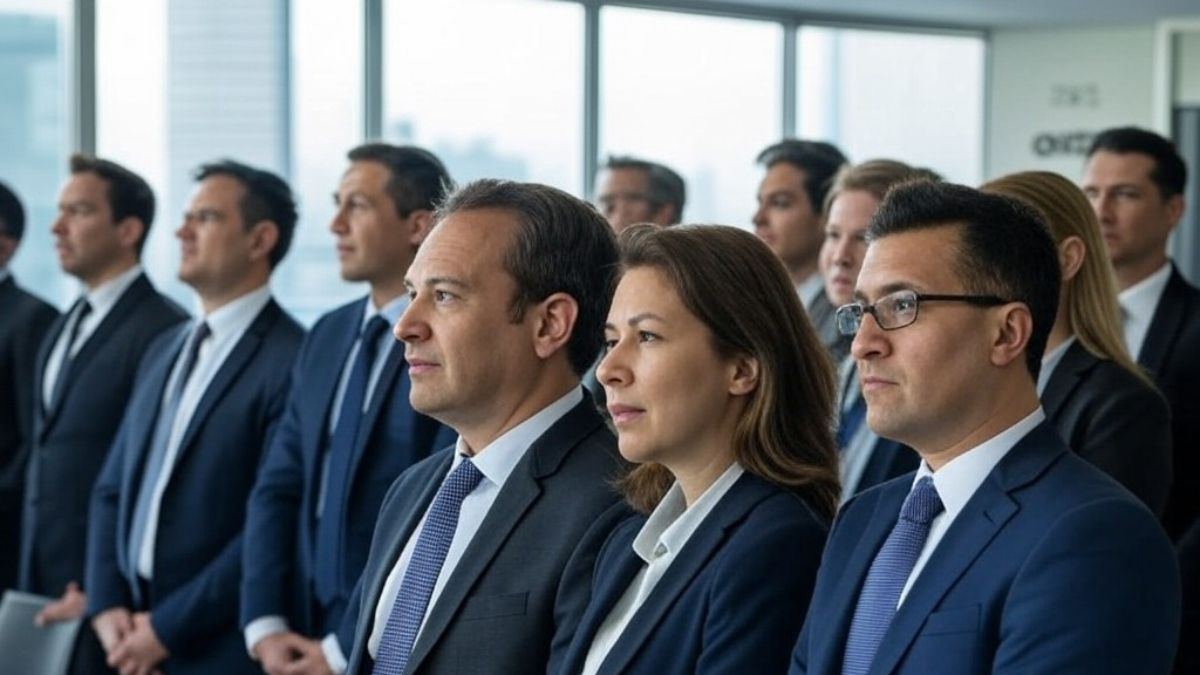Executives are optimistic about the economy. More than 90% of CEOs (Chief Executive Officer in English) of companies in Argentina expect “that the economy grows in 2025 and almost half plan to incorporate more personnel into their companies”according to PwC’s 28th Annual Global CEO Survey 2025.
The reasons are “the fall of inflationary expectations and macroeconomic normalization.” It should be noted that the same survey in 2024 showed that only 18% had given positive answers. Last year, 82% of local respondents were pessimistic about the future.
More than half of those interviewed estimate an improvement in billing and profitability of their companies in the next three years.
Leadership
Argentina leads the region’s growth projections for 2025 since 9 out of 10 Argentine executives expect the local economy to gain momentum and take off. This situation contrasts with the measurement from a year ago when 6 out of 10 CEOs predicted a drop in the Gross Domestic Product (GDP), and 2 out of 10 predicted a pronounced fall, influenced by the inflationary acceleration and the imbalance of all macroeconomic variables. that was lived at the end of 2023.
Given the best perspective for business, 42% hope to incorporate more staff in the next 12 months, more than double those who estimate to reduce it.
Business volatility is a matter of concern. He 42% believe that their company will not be viable beyond 10 years without reinventionwhich means that new strategies must be considered to advance the transformation process in a changing environment.
“We identified two megatrends that will reconfigure the future of business and society and drive the reinvention of organizations in the next decade: artificial intelligence and climate sustainability”explains Miguel Uruspartner in charge of PwC Argentina.
“In relation to the first of them, we see how CEOs have incorporated this topic into their business plans and their organizations are adding these new technologies, working to take advantage of their full potential and carrying out the necessary adaptations for their implementation.”
The manager points out that an example of this is that More than half of business leaders acknowledge that AI has helped improve employee time efficiency, while almost half say this technology has increased their companies’ revenue and profitability..
Urus also stated “we observe that investment in climate issues and sustainability is paying off, since At least one in three CEOs globally reported that climate-friendly investments made over the past five years have generated higher income.”
In this regard, the report revealed that in Argentina the trend of last year is maintained, since 83% of companies stated that they have made investments to reduce their impact on their carbon footprint in the last five years. Likewise, for 61% of those surveyed, these initiatives did not represent a significant increase in costs.
Risks
Although the executives consulted are optimistic about the global economy, macroeconomic volatility (29%) and inflation (27%) remain the main risks for 2025but with clear differences between regions. Geopolitical conflict is considered the greatest danger in the Middle East (41%) and Central and Eastern Europe (34%). In Western Europe, cyber risk (27%) is a marginally bigger concern than a lack of skilled employees (25%) and inflation (24%), with macroeconomic volatility topping the list at 29%. Inflation is the main concern in Africa (39%), while North America and Asia-Pacific prioritize risks in line with global averages.
Among other threats not strictly linked to the economic situation, the opinions of local directors differ from those of their regional peers in several fields. For example, regarding the climate change, only 9% of Argentine CEOs perceive this reality as a high or extremely high risk for their company, unlike the view of Brazilians, who assign it to 21%. The danger of a cyber attack gathered 13% of the responses, compared to 26% in the case of Brazilians and 20% in that of Uruguayan executives.
In that sense, Martin Barbafinapartner in charge of Marketing and Communication at PwC Argentina highlighted: “Argentine CEOs face this scenario of changes with the conviction that they will have to work more than ever on organizational efficiencies to achieve objectives, and aware that the correct strategies they define now will impact those goals in the future. In this regard, the report reveals that “6 out of 10 executives believe that the democratization of technology will be key to outlining the steps to follow, and 52% will use it to develop new products and services in the next three years.”
With regard to the risks derived from the social inequality (and related wage claims), 11% of Argentine executives were concerned about this variable, unlike their Brazilian and Uruguayan peers, who do not see this issue as a significant threat to their organizations..
Within that group, the risk that most concerns local executives is technological disruption, which includes advances in AI: 30% responded that their company was between highly and extremely exposed to this threat in the performance of their business. Here, the vision of Argentines surpasses that of Brazilians (24%) and Uruguayans (27%) in the same field.
Source: Ambito
David William is a talented author who has made a name for himself in the world of writing. He is a professional author who writes on a wide range of topics, from general interest to opinion news. David is currently working as a writer at 24 hours worlds where he brings his unique perspective and in-depth research to his articles, making them both informative and engaging.




